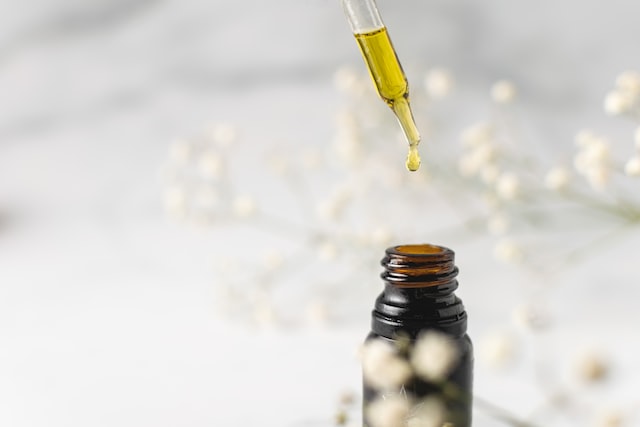Essential oils have gained popularity in recent years for a variety of reasons, and one of those reasons is their ability to alleviate anxiety. The holistic use of aromatherapy is worth exploring if it helps lessen tension or worrisome thoughts. This may be done by adding plant-derived chemicals to a bath for relaxation or by diffusing them in the bedroom to aid a whole night’s sleep.
Seeking professional mental health counseling is the first and most crucial step in recognizing and controlling stress. Eighty-plus percent of people who participated in a recent poll about mental health conditions said that medication was the best option for treatment. However, 66% said they had put off trying a medicine because of shame, fear, or ignorance.
We should start with the fundamentals: The therapeutic use of fragrant herbs, sometimes known as aromatherapy, has piqued my interest. A plant’s essential oil is a “volatile chemical generated by the plant and extracted by distillation,” Some of the distinguishing features of crucial oils converse here, and it will help you determine whether or not they are copies or originals. They’re helpful for a lot more than simply aromatherapy. One of the most accessible and risk-free ways for regular people to benefit from essential oils is to inhale them. You can learn more about the genuineness of essential oils by reading this detailed guide.
How can we Pick
These essential oils were picked because they ease tension and worry. Further, we analyzed research that demonstrated these attributes’ usefulness.
When utilized appropriately, essential oils pose no health risks.
The body reacts differently to different substances, so it’s significant to be careful when introducing new ones. To reduce the risk of skin irritation, essential oils must be diluted. Keep essential oil concentrations below 5% as a general guideline.=
Keep in mind that there may be interactions between medications and that you should be careful with the dose, the purity, the administration technique, and the timing of any of these. Although inhalation is generally regarded harmless, topical application of specific oils at concentrations as low as 3% to 5% may cause skin irritation.
De-Stressing with Aromatherapy
Do you find that essential oils help reduce your stress levels? No. You can still benefit from them somewhat.
Physiological manifestations of anxiety include a racing heart and high blood pressure. However, your body still reacts as though actual threats were present.
Several recent studies have demonstrated that aromatherapy can assist people with anxiety by doing things like • calming the muscles and organs, • lowering blood pressure, • facilitating sleep (a problem for many people!
Aromatherapy may reduce anxiety disorder symptoms but will not treat the underlying cause.
Read more: Botox and Filler Experts
Aromatherapy for Stress and Anxiety Relief
When combined with other treatments, the scent of an essential oil can help a person with anxiety concentrate on the present moment. The expert claims that essential oils can serve as a “mental anchor,” relieving anxiety for the long term.
The sense of smell is so potent that it may transport a person to another time and place simply by reminding them of a pleasant aroma. When they feel calm, and at ease, like having tea in the garden or hanging out with friends, they apply an essential oil or a combination of fats. When they’re unwell, the scent might help them feel better.
Rosemary
Essential oil sachets containing lavender and rosemary alleviated test-taking nerves in a group of graduate nursing students in a 2009 study. The therapeutic use of rosemary as an anti-anxiety treatment was shown to be beneficial and safe in a separate investigation.
Patchouli
You’ll often see patchouli incense being burned at yoga studios for a good reason. The effects of patchouli on the entire body have only been examined in a few research. Despite this, a 2015 research revealed its potential use in aromatherapy to treat sadness and anxiety.
Geranium
Surprise! Geranium is one of the most incredible essential oils for alleviating anxiety and has a lovely fragrance. A 2015 research found that laboring women who inhaled geranium oil had lower diastolic blood pressure and were less anxious. You should learn more about the health advantages of geranium if morning anxiety is a recurring problem for you.
Lavender
The lavender essential oil has been one of the most researched for treating anxiety. Multiple studies have found that inhaling lavender oil has a calming effect on anxious subjects. Since lavender has a calming impact on the neurological system, taking a supplement containing lavender or drinking lavender tea might likely help reduce tension, albeit momentarily.
Jasmine
Jasmine’s floral perfume is frequently associated with romance and leisure. A 2017 mouse research found that essential oil lowered stress.
Rose
Rose petal spa treatments have more than just surface advantages. Stress and menstrual cramps are two conditions that have been demonstrated to benefit from the topical use of rose essential oil. You can dilute the oil with shea butter or coconut oil before applying it to your skin.
